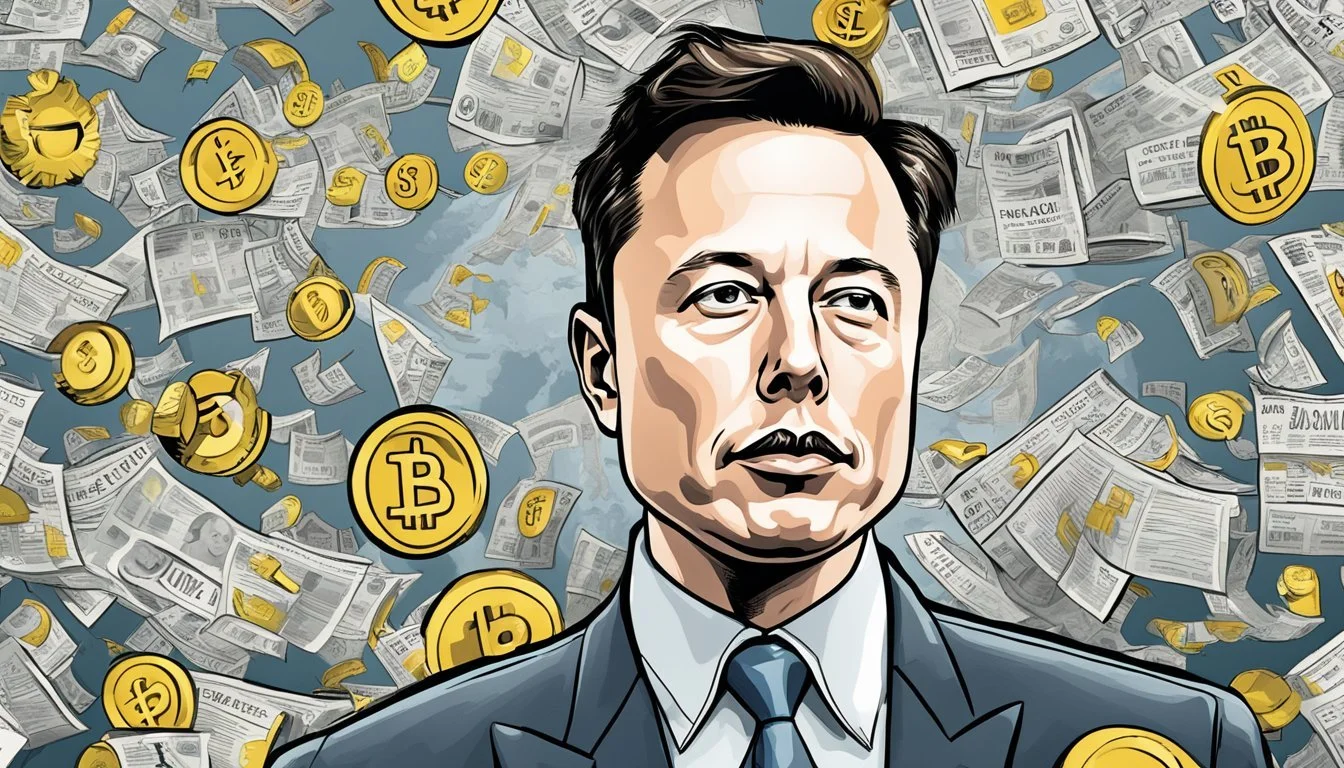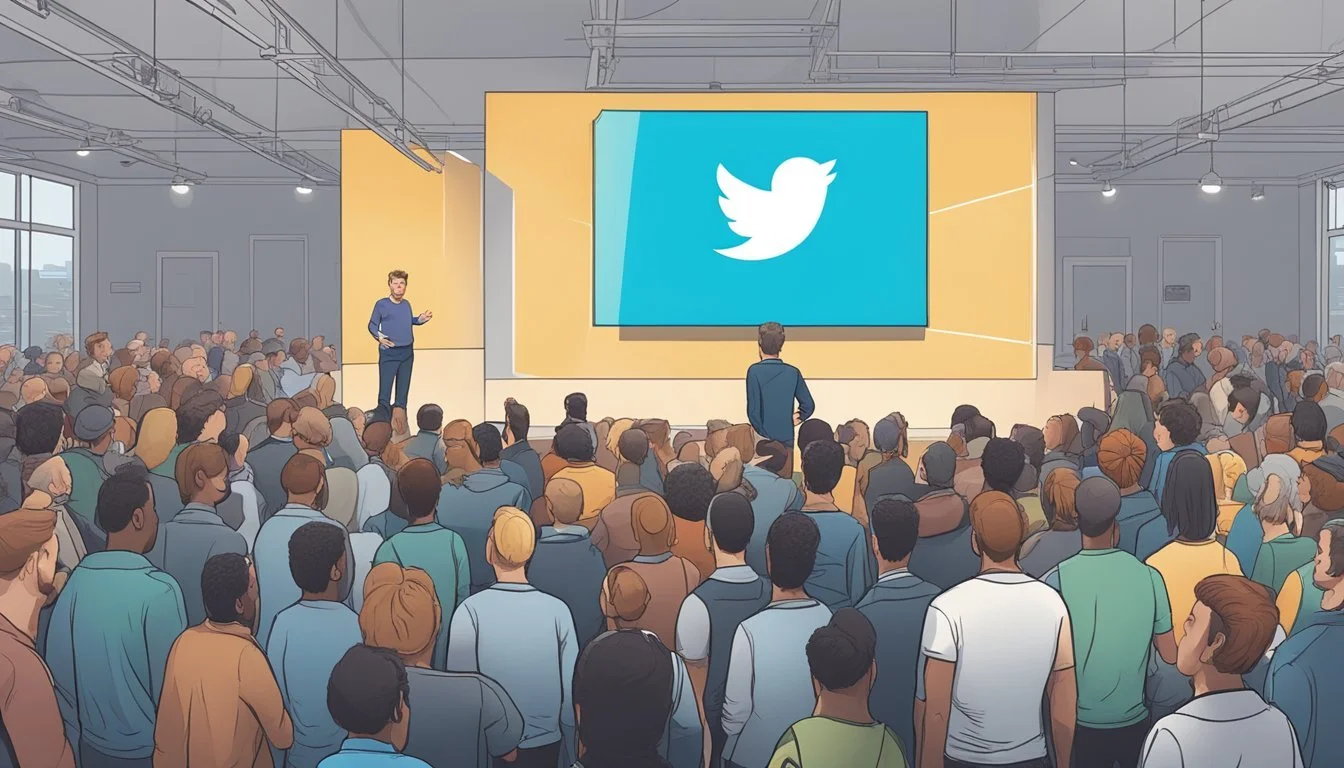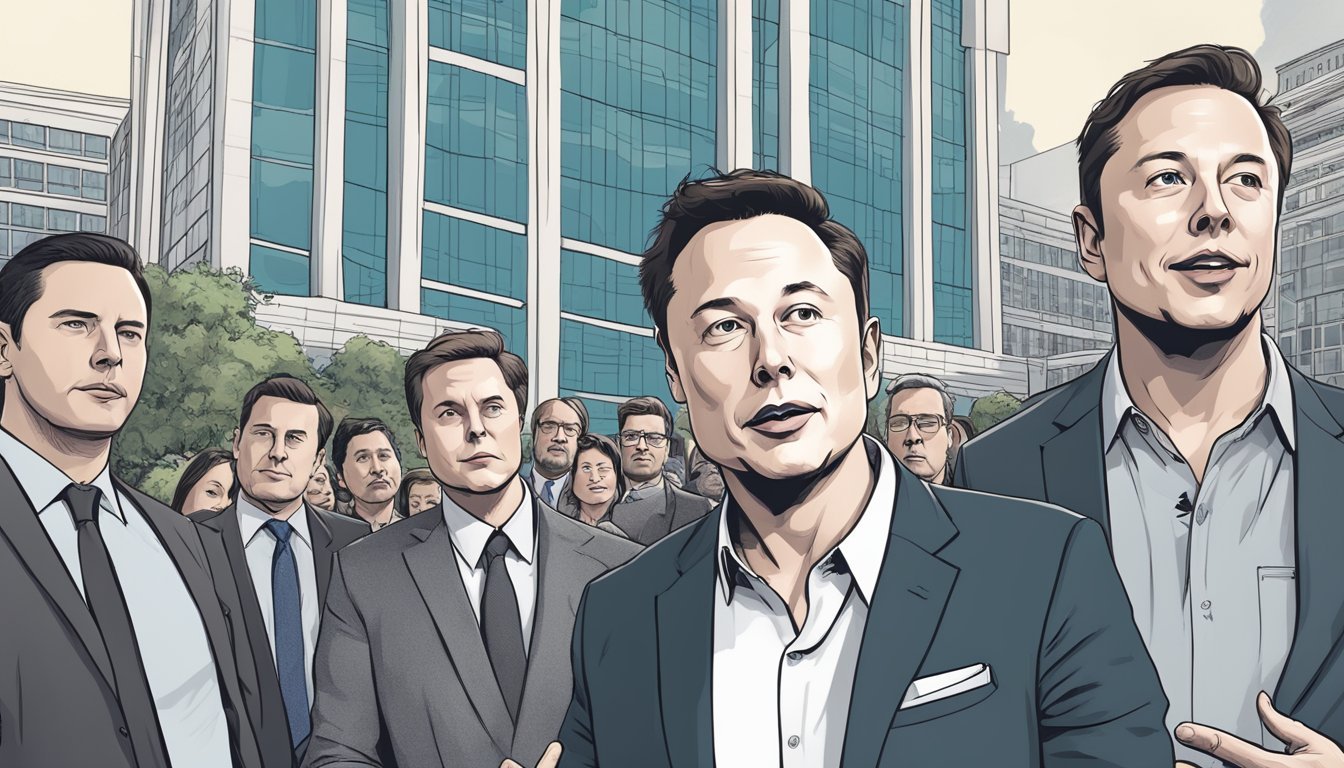Exploring Rumors of Elon Musk Acquiring ABC
Potential Media Acquisition Rumors Analyzed
Rumors and speculation about Elon Musk's potential acquisition of ABC have circulated on social media in recent years. These claims often suggest that Musk aims to reshape the network's content or cancel specific shows. However, there is no credible evidence to support the notion that Elon Musk plans to buy ABC.
Fact-checkers have debunked several viral posts claiming Musk's involvement with ABC. These false reports range from assertions about Musk urging boycotts of the network to plans for purchasing ABC to remove "wokeness" or cancel popular programs like "The View."
While Musk has made high-profile acquisitions in the past, including his purchase of Twitter (now X), he has not expressed any public interest in buying ABC. The network remains owned by The Walt Disney Company, and no legitimate sources have reported ongoing negotiations or plans for its sale to Musk or any other buyers.
Elon Musk: Profile and Business Ventures
Elon Musk has emerged as a prominent innovator and entrepreneur, reshaping multiple industries through his ambitious ventures. His companies have revolutionized space travel, electric vehicles, and social media platforms.
Innovation at SpaceX and Tesla
SpaceX, founded by Musk in 2002, aims to reduce space transportation costs and enable Mars colonization. The company has achieved numerous milestones, including developing reusable rockets and launching the first commercial spacecraft to dock with the International Space Station.
Tesla, with Musk at the helm, has transformed the automotive industry. The company produces popular electric vehicles like the Model S, Model 3, and Cybertruck. Tesla's innovations extend beyond cars to sustainable energy solutions, including solar panels and battery storage systems.
Musk's leadership has driven both companies to push technological boundaries and challenge established industry norms.
Elon Musk's Influence on Social Media
In 2022, Musk acquired Twitter for $44 billion, rebranding it as X. His stated goals include promoting free speech and improving the platform's algorithm transparency.
Musk's own social media presence is substantial, with millions of followers across platforms. He frequently uses X to share updates about his companies, personal views, and engage with users directly.
His influence extends beyond his own platforms. Musk's tweets have impacted stock prices and cryptocurrency values, demonstrating the power of his online presence in shaping market trends.
The ABC Network
ABC stands as a major television network in the United States, known for its diverse programming and influential daytime talk shows. The network has a significant impact on American popular culture and public discourse.
Programming and Influence
ABC offers a wide range of content, from news and entertainment to sports. The network's prime-time lineup features popular dramas, comedies, and reality shows that attract millions of viewers. ABC News provides comprehensive coverage of national and international events, with programs like "World News Tonight" and "20/20" shaping public understanding of current affairs.
ABC's influence extends beyond entertainment, as it often addresses social issues through its programming. The network has earned numerous awards for its productions, including Emmys and Golden Globes. ABC's reach is further amplified by its digital platforms, allowing viewers to access content across various devices.
The View and Daytime Talk Show Impact
"The View" stands out as one of ABC's most prominent daytime talk shows. Launched in 1997, it features a panel of women discussing hot topics and interviewing guests. The show has become a cultural touchstone, often making headlines for its frank discussions and occasional controversies.
"The View" has hosted numerous high-profile guests, including politicians, celebrities, and thought leaders. Its format has inspired similar shows on other networks. The hosts of "The View" have become influential figures in their own right, with their opinions on current events often sparking wider debates.
ABC's daytime lineup also includes other talk shows and soap operas that have loyal followings. These programs contribute significantly to the network's daytime ratings and ad revenue.
Historical Media Acquisitions
Media acquisitions have shaped the landscape of entertainment and information. Tech entrepreneurs and established conglomerates have made strategic purchases to expand their reach and influence.
High-Profile Acquisitions by Tech Entrepreneurs
Jeff Bezos acquired The Washington Post in 2013 for $250 million. This move brought a tech industry perspective to traditional journalism.
In 2022, Elon Musk purchased Twitter for $44 billion. The acquisition sparked debates about free speech and content moderation on social media platforms.
Mark Zuckerberg's Facebook (now Meta) bought Instagram for $1 billion in 2012 and WhatsApp for $19 billion in 2014. These acquisitions solidified Meta's dominance in social networking.
Walt Disney's Acquisition Strategy
Walt Disney Company has a long history of strategic acquisitions. In 1996, Disney acquired Capital Cities/ABC for $19 billion, gaining control of the ABC television network and ESPN.
Disney purchased Pixar Animation Studios in 2006 for $7.4 billion. This move brought innovative animation techniques and beloved franchises under the Disney umbrella.
The company acquired Marvel Entertainment in 2009 for $4 billion. This deal gave Disney access to a vast universe of superhero characters and stories.
In 2012, Disney bought Lucasfilm for $4.05 billion, obtaining the rights to the Star Wars and Indiana Jones franchises.
Satire and Parody in Modern Media
Satire and parody play significant roles in shaping media narratives and public perception. These forms of commentary use humor and exaggeration to critique current events and societal issues.
The Role of Satire in News Interpretation
Satirical news outlets offer alternative perspectives on current events. They use humor to highlight absurdities in politics, culture, and society. Sites like The Onion and The Babylon Bee publish fictional stories that mirror real news formats.
These platforms often blur the lines between fact and fiction. Some readers mistake satirical articles for genuine news reports. This confusion can lead to the spread of misinformation when people share these stories without recognizing their satirical nature.
Satire serves as a form of social commentary. It encourages critical thinking and challenges readers to question mainstream narratives. However, it also requires media literacy to distinguish between satire and authentic reporting.
Prominent Parody News Outlets
Several well-known parody news sources have gained significant followings. The Onion, founded in 1988, is one of the most recognized satirical news websites. It publishes articles on politics, technology, and pop culture with a comedic twist.
The Daily Show, a television program, combines comedy with political commentary. It presents current events through a satirical lens, often mocking politicians and media figures.
Clickhole, an offshoot of The Onion, parodies clickbait-style articles and viral content. It highlights the absurdity of internet culture and social media trends.
These outlets demonstrate the power of parody in media. They entertain while providing insightful critiques of society and journalism practices.
The Phenomenon of Misinformation and Fact-Checking
Misinformation spreads rapidly in today's digital age, making fact-checking crucial. Social media platforms and news outlets grapple with the challenge of distinguishing truth from fiction.
Identifying and Combating Fake News
Fake news refers to false or misleading information presented as factual news. It often spreads quickly through social media channels. To combat this, many platforms have implemented fact-checking systems.
X (formerly Twitter) uses a crowd-sourced approach called Community Notes. However, research suggests this system struggles to address the flood of election misinformation effectively.
Other social networks employ professional fact-checkers or partner with third-party organizations. These efforts aim to flag and reduce the spread of false information.
Media literacy education has become increasingly important. Teaching people to critically evaluate sources and claims helps combat the spread of misinformation at an individual level.
The Importance of Fact-Checking Organizations
Independent fact-checking organizations play a vital role in verifying claims and debunking falsehoods. Snopes, PolitiFact, and FactCheck.org are among the most well-known.
These organizations investigate viral claims, political statements, and news stories. They provide detailed analyses and rate the accuracy of information.
Fact-checkers use various methods to verify claims:
Consulting primary sources
Interviewing experts
Analyzing data and statistics
Cross-referencing multiple reliable sources
Their work helps inform the public and holds public figures accountable. Many news outlets now incorporate fact-checking into their reporting processes.
Fact-checking organizations face challenges, including the volume of misinformation and the speed at which it spreads. They must also maintain public trust and navigate accusations of bias.
Public Reactions and Social Movements
Rumors of Elon Musk potentially acquiring ABC sparked diverse reactions across social media platforms. These speculations led to discussions about media ownership, content direction, and cultural values in broadcasting.
Boycott Campaigns and Their Impact
Calls for boycotts against ABC emerged on various social networks. Some users urged others to stop watching ABC programming, citing concerns about perceived biases in news coverage. These campaigns gained traction among certain online communities, with hashtags like #BoycottABC trending periodically.
The impact of these boycott efforts remains unclear. While some viewers claimed to have stopped watching ABC shows, network ratings did not show significant changes attributable to these campaigns. Media analysts noted that boycotts often have limited long-term effects on large networks.
Several advertisers faced pressure from boycott supporters to pull their ads from ABC. However, most major companies maintained their advertising relationships with the network.
Wokeness and Cultural Shifts
Discussions about "wokeness" in media intensified amid rumors of Musk's interest in ABC. Critics argued that ABC's content had become too politically correct or left-leaning. Supporters of the network defended its approach as inclusive and socially responsible.
The term "woke" became a focal point in debates about ABC's programming choices. Some viewers praised the network for addressing social issues, while others accused it of pushing a specific agenda.
Media experts pointed out that perceptions of "wokeness" often vary widely among different audience segments. They noted that major networks typically aim to balance diverse viewpoints to maintain broad appeal.
These discussions reflected broader societal debates about representation and cultural sensitivity in mainstream media. The controversy highlighted ongoing tensions between traditional broadcasting approaches and evolving social expectations.
Speculative Analysis: Elon Musk and the ABC Acquisition
Rumors of Elon Musk acquiring ABC have circulated, but no credible evidence supports these claims. This analysis examines potential synergies and challenges if such an acquisition were to occur.
Assessing the Potential Synergies
Elon Musk's innovative approach could potentially revolutionize ABC's content delivery and technology infrastructure. His experience with SpaceX and Starlink might enable enhanced satellite broadcasting capabilities for ABC. Musk's social media expertise from X (formerly Twitter) could boost ABC's digital presence and engagement strategies.
The acquisition could provide ABC access to cutting-edge technologies and a fresh perspective on content creation. Musk's entrepreneurial mindset might drive the development of new revenue streams and innovative programming formats.
Challenges and Strategic Considerations
Regulatory hurdles would likely pose significant obstacles to any potential acquisition. The Federal Communications Commission (FCC) closely scrutinizes media ownership to maintain diversity in broadcasting.
Musk's controversial public persona and outspoken nature could conflict with ABC's established brand image and journalistic standards. This mismatch in corporate cultures might lead to internal tensions and public relations challenges.
Financial considerations would be substantial. ABC's parent company, Disney, is a media giant with a market capitalization in the hundreds of billions. The cost of acquisition would be enormous, even for someone of Musk's wealth.
Legal and Regulatory Considerations
Any potential acquisition of ABC by Elon Musk would face significant legal and regulatory scrutiny. The deal would need to navigate complex antitrust laws and undergo rigorous review by governmental oversight bodies.
Antitrust Laws and Acquisitions
The Justice Department closely examines major media acquisitions for potential antitrust violations. Musk's ownership of other influential platforms like X (formerly Twitter) could raise concerns about media concentration. Regulators would assess whether the deal would reduce competition or harm consumers.
Key factors include:
Market share in television and digital media
Impact on advertising rates
Potential for editorial influence across multiple platforms
Musk might need to divest certain assets or agree to operational restrictions to gain approval.
Governmental Bodies and Oversight Procedures
The Federal Communications Commission (FCC) plays a crucial role in reviewing broadcast acquisitions. They evaluate:
Public interest considerations
Compliance with ownership limits
Foreign investment restrictions
The Securities and Exchange Commission (SEC) would scrutinize the financial aspects of the deal. They focus on:
Disclosure of material information
Fairness to shareholders
Compliance with securities laws
The review process can take months or even years. Musk and ABC would need to provide extensive documentation and may face public hearings.
Conclusion
The rumors of Elon Musk acquiring ABC to remove "wokeness" are unfounded. Multiple fact-checking sources have debunked these claims circulating on social media in late 2024.
No credible evidence supports the notion that Musk plans to purchase the television network. The viral posts appear to be fabricated and spread without verification.
Similarly, reports of ABC losing viewers due to a supposed boycott called by Musk are also false. Fact-checkers found no record of the Tesla CEO urging such action against the network.
These stories highlight the importance of critical thinking when encountering sensational claims online. Reputable news sources and fact-checking websites remain valuable tools for verifying information.
As of November 2024, ABC continues to operate independently. No major changes to the network's ownership or editorial direction have been announced or are anticipated in the near future.









